State Opera Vienna
- Opernring 1
1010 Wien
- Tickets unter
- +43 1 400 600
- office@viennaticket.at
The State Opera in Vienna is one of the leading opera houses in the world. The appearance of first class singers, the orchestra, which consists of members of the Vienna Philharmonic orchestra, as well as a good mix of "classical" and "modern" settings guarantees an enjoyable evening with opera or ballet.
-
 © PoehnElektra Opera by Richard Strauss State Opera Vienna - WienSun 14.Dec 2025 Wed 17.Dec 2025+ 4 more
© PoehnElektra Opera by Richard Strauss State Opera Vienna - WienSun 14.Dec 2025 Wed 17.Dec 2025+ 4 more -
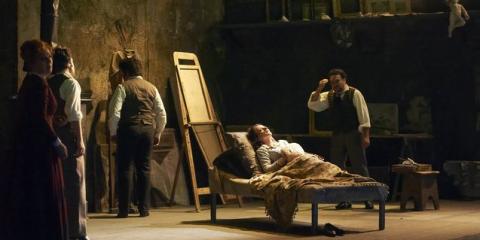 © Wiener StaatsoperLa Boheme Opera by Giacomo Puccini State Opera Vienna - WienMon 15.Dec 2025 Thu 18.Dec 2025+ 4 more
© Wiener StaatsoperLa Boheme Opera by Giacomo Puccini State Opera Vienna - WienMon 15.Dec 2025 Thu 18.Dec 2025+ 4 more -
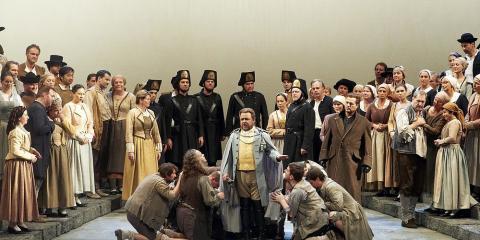 © Wiener Staastoper GmbH / Michael PFidelio Opera by Ludwig van Beethoven State Opera Vienna - WienTue 16.Dec 2025 Fri 19.Dec 2025+ 5 more
© Wiener Staastoper GmbH / Michael PFidelio Opera by Ludwig van Beethoven State Opera Vienna - WienTue 16.Dec 2025 Fri 19.Dec 2025+ 5 more -
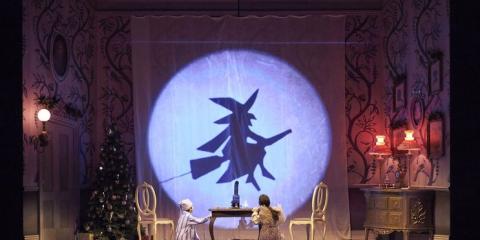 © Wiener Staatsoper GmbH/Michael PHänsel and Gretel Opera by Engelbert Humperdinck State Opera Vienna - WienFri 26.Dec 2025 Sun 28.Dec 2025+ 4 more
© Wiener Staatsoper GmbH/Michael PHänsel and Gretel Opera by Engelbert Humperdinck State Opera Vienna - WienFri 26.Dec 2025 Sun 28.Dec 2025+ 4 more -
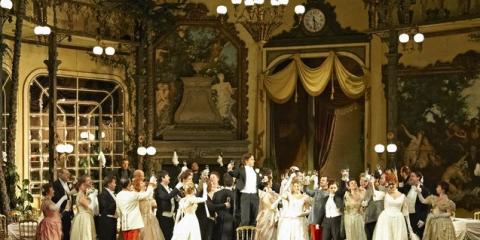 © Wiener Staatsoper GmbH/Michael PDie Fledermaus Operetta by Johann Strauss State Opera Vienna - WienWed 31.Dec 2025 Thu 01.Jan 2026+ 4 more
© Wiener Staatsoper GmbH/Michael PDie Fledermaus Operetta by Johann Strauss State Opera Vienna - WienWed 31.Dec 2025 Thu 01.Jan 2026+ 4 more -
 © PoehnBallet: Kallirhoe State Opera Vienna - WienSun 04.Jan 2026 Mon 05.Jan 2026+ 4 more
© PoehnBallet: Kallirhoe State Opera Vienna - WienSun 04.Jan 2026 Mon 05.Jan 2026+ 4 more -
 © PoehnRusalka Opera by Antonín Dvořák State Opera Vienna - WienThu 08.Jan 2026 Sat 10.Jan 2026+ 4 more
© PoehnRusalka Opera by Antonín Dvořák State Opera Vienna - WienThu 08.Jan 2026 Sat 10.Jan 2026+ 4 more -
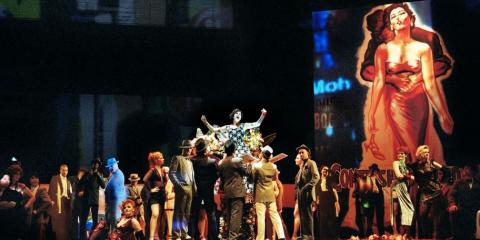 © Axel ZeiningerManon Opera by Jules Massenet State Opera Vienna - WienFri 09.Jan 2026 Sun 11.Jan 2026+ 4 more
© Axel ZeiningerManon Opera by Jules Massenet State Opera Vienna - WienFri 09.Jan 2026 Sun 11.Jan 2026+ 4 more -
 © PoehnIdomeneo, rè di Creta Opera by Wolfgang Amadeus Mozart State Opera Vienna - WienFri 16.Jan 2026 Mon 19.Jan 2026+ 4 more
© PoehnIdomeneo, rè di Creta Opera by Wolfgang Amadeus Mozart State Opera Vienna - WienFri 16.Jan 2026 Mon 19.Jan 2026+ 4 more -
 © PoehnThe Marriage of Figaro Opera by Wolfgang Amadeus Mozart State Opera Vienna - WienSun 18.Jan 2026 Tue 20.Jan 2026+ 5 more
© PoehnThe Marriage of Figaro Opera by Wolfgang Amadeus Mozart State Opera Vienna - WienSun 18.Jan 2026 Tue 20.Jan 2026+ 5 more -
 © PoehnMatinee to »Luisa Miller« State Opera Vienna - WienSun 18.Jan 2026
© PoehnMatinee to »Luisa Miller« State Opera Vienna - WienSun 18.Jan 2026 -
 © PoehnSolo recital Nadine Sierra State Opera Vienna - WienThu 22.Jan 2026
© PoehnSolo recital Nadine Sierra State Opera Vienna - WienThu 22.Jan 2026 -
 © Wiener Staatsoper GmbH / Michael PL'elisir d'amore Opera by Gaetano Donizetti State Opera Vienna - WienTue 27.Jan 2026 Sat 31.Jan 2026+ 6 more
© Wiener Staatsoper GmbH / Michael PL'elisir d'amore Opera by Gaetano Donizetti State Opera Vienna - WienTue 27.Jan 2026 Sat 31.Jan 2026+ 6 more -
 © PoehnBallet: Jewels State Opera Vienna - WienFri 30.Jan 2026 Wed 04.Feb 2026+ 7 more
© PoehnBallet: Jewels State Opera Vienna - WienFri 30.Jan 2026 Wed 04.Feb 2026+ 7 more -
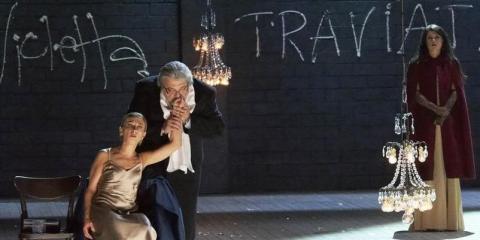 © Wiener Staatsoper GmbH / Michael PLa Traviata Opera by Giuseppe Verdi State Opera Vienna - WienSun 01.Feb 2026 Tue 03.Feb 2026 Fri 06.Feb 2026
© Wiener Staatsoper GmbH / Michael PLa Traviata Opera by Giuseppe Verdi State Opera Vienna - WienSun 01.Feb 2026 Tue 03.Feb 2026 Fri 06.Feb 2026 -
 © PoehnLuisa Miller Opera by Giuseppe Verdi State Opera Vienna - WienSat 07.Feb 2026 Mon 16.Feb 2026+ 6 more
© PoehnLuisa Miller Opera by Giuseppe Verdi State Opera Vienna - WienSat 07.Feb 2026 Mon 16.Feb 2026+ 6 more -
 © PoehnSolo recital Anna Netrebko State Opera Vienna - WienWed 18.Feb 2026
© PoehnSolo recital Anna Netrebko State Opera Vienna - WienWed 18.Feb 2026 -
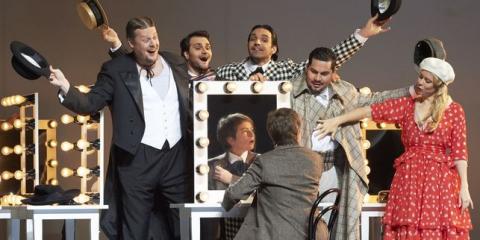 © Wiener StaatsoperAriadne auf Naxos Opera by Richard Strauss State Opera Vienna - WienThu 19.Feb 2026 Sun 22.Feb 2026 Wed 25.Feb 2026
© Wiener StaatsoperAriadne auf Naxos Opera by Richard Strauss State Opera Vienna - WienThu 19.Feb 2026 Sun 22.Feb 2026 Wed 25.Feb 2026 -
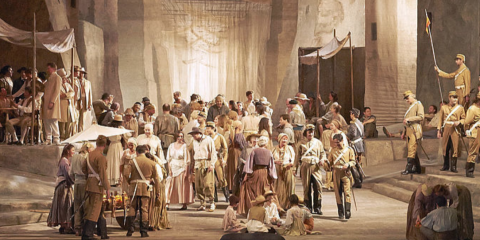 © Wiener Staatsoper GmbH / Michael PCarmen Opera by Georges Bizet State Opera Vienna - WienSat 21.Feb 2026 Tue 24.Feb 2026+ 9 more
© Wiener Staatsoper GmbH / Michael PCarmen Opera by Georges Bizet State Opera Vienna - WienSat 21.Feb 2026 Tue 24.Feb 2026+ 9 more -
 © PoehnMatinee to »Clemenza di Tito« State Opera Vienna - WienSun 22.Feb 2026
© PoehnMatinee to »Clemenza di Tito« State Opera Vienna - WienSun 22.Feb 2026
The “Wiener Staatsoper“ is without a doubt one of the most leading opera stages in the world. The building was finished in 1869 and opened with the premiere of “Don Giovanni” by Wolfgang Amadeus Mozart, at which even Empress Elisabeth and Emperor Franz Joseph were present. Many premieres were celebrated in the “Wiener Staatsoper”, like “Werther” by Jules Massenet, “Notre Dame” by Franz Schmidt or “Guiditta” by Franz Lehár. The playing season starts in September and lasts until the end of June. In this period almost daily performances are played and in total there are around 350 performances with over 60 different works. The program covers opera and ballet performances which are supplemented by solo artist concerts (Edita Gruberova) and lieder recitals. The “Wiener Staatsopernorchester” is composed of members of the “Wiener Philharmoniker”. Additionally the choir of the “Wiener Staatsoper”, which provides 100 vocalists, and the “Wiener Staatsballett” are available. The most important works of opera literature like Tosca (Puccini), Troubadour (Verdi), Carmen (Bizet), The Barber of Seville (Rossini) and Parsifal (Wagner) are on the program and are complemented by works from baroque up to the modern creations. In addition to the program of the “Wiener Staatsoper” are Turandot (Puccini), Arabella (Strauss), Medea (Reimann), Das Rheingold (Wagner), Eugen Onegin (Tschaikowski) or Fidelio (Beethoven). Another highlight, which takes place every year in the “Wiener Staatsoper”, is the Opera Ball. The international recognized highlight of the ball season usually takes place on the last Thursday before Ash Wednesday and is even broadcasted on TV. Even though the “Staatsoper” is often sold out, we can usually offer a selection of tickets for all performances until the day of the performance. Even before the official advance booking, we can offer you tickets for all performances in the “Wiener Staatsoper”. Save yourself tickets for an unforgettable evening in the “Wiener Staatsoper” and book tickets at viennaticket.at!
